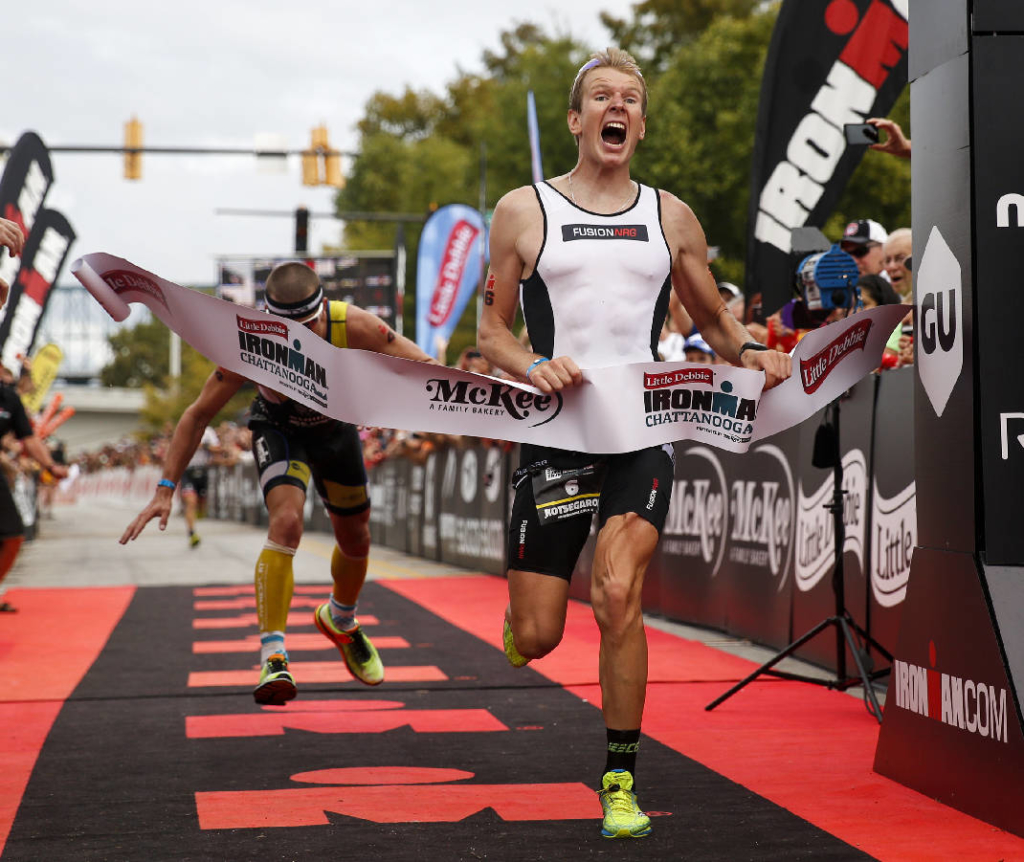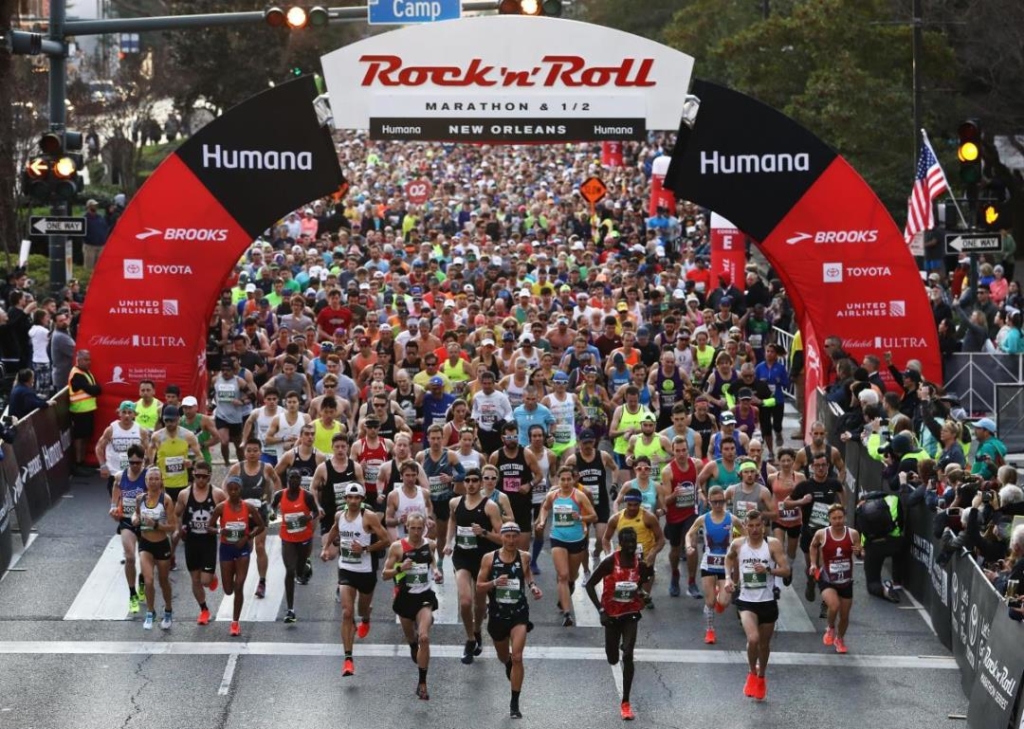If you've read Thursday's news that Spartan has partnered with La Ruta, the hardest mountain bike race in the world, then you may be wondering what's next for Spartan as an endurance brand. If you haven't, below is the La Ruta video with Joe De Sena's voice to explain a bit, and I'll give my prognostications for where I see Spartan heading in 2020 and beyond:
Spartan Endurance – Not Just OCR
When Spartan started dropping “race” from the name in 2017, it initially seemed a bit odd to those of us who knew Spartan Race only as an OCR (or OR, an acronym Joe tried very hard to make stick) event that was competitive, timed, had a pro team, and by all means was still absolutely a “race”. Some wondered if Spartan was softening their brand a bit to compete better with the untimed Tough Mudder, the beginner-level Warrior Dash or even to stay one step ahead of the surging Rugged Maniac who was flush with investment and backing from a very prominent shark.
The next few series of moves only reinforced the initial assumption that Spartan was “going soft” and moving away from hardcore, elite-only events – adding additional non-competitive waves and even announcing an obstacle-free trail running series, Spartan Trail. With the expansion of their Spartan Kids program and the development of Spartan Life under its founder, Joe De Sena's personal guidance, an industry insider such as myself would've put money on Spartan's development into a lifestyle fitness brand – an $87 billion market worldwide they had tried unsuccessfully to break into several times over the years through equipment, programs, and gym partnerships. OCR is – at most – a $500 million dollar market that while growing globally is shrinking in the United States. The fitness market, on the other hand, is growing at a 4% rate over in the USA over the past 3 years, valued as high as $30 billion. If you click on that Forbes article, the #6 reason for this growth in the health and fitness market in the USA is – you may have guessed it – Obstacle Course Racing.
But wait – that doesn't make sense – if obstacle course racing is flat in the USA, then how could it be one of the top contributors in growing a 30 billion dollar segment of sports? Well, that's pretty easy to see if you've been focused on sports and athletics over the last decade – but here's the simple answer: participation in sports/events is cyclical.


Rise & Fall of Races – The Cycle
Triathlon: Triathlon, a sport born in 1979 as a barroom bet saw participation explode in the mid to late 2000's and hit its peak in 2011. From 2012 to 2019, participation has fallen by 30%. In short, the rise of triathlon can be contributed to new-found socialization through sport; an exciting “bucket list” sport met perfectly at the intersection of the explosion online resources for events, training, and group get-togethers for social interactions. For multi-sport athletes, triathlon groups were social media before social media. While bucket-listers were the first to depart after one-and-done, triathlon's extremely competitive nature coupled with the huge expense of better and better equipment (and the carousel of keeping up with the Joneses) as well as the expense and hassles of traveling to events with a whole accompaniment of triathlon bled many athlete's bank accounts dry. Since many of those same athletes were already accomplished runners, they helped to feed the running boom – events were cheaper, gear was cheaper, and you only needed a backpack for your race gear.
Road Running: From 2008 through 2013 road running (all distances 5k or greater) saw exponential growth to over 19 million participants across the United States. Participation spread like wildfire and nationwide there were thousands of events every weekend, and sharing your participation started to become the thing to do on social media with Facebook jumping from 100 million to 1 billion members during this same timeline.
From the Wall Street Journal article How Millennials Ended the Running Boom (paywall):
“Nontraditional running events with mud, foam, lights or fake zombies surged to an estimated four million finishers in 2013 from the low six figures in 2009, according to Running USA. That surpassed the total number of half-marathon and marathon finishers.”
Over the past 5 years, overall participation has fallen by nearly 1 million annual participants. One interesting quote in the Running USA 2019 U.S. Running Trends Report that was not included in previous years was: “The declines are observed in non-traditional race distances and events.” In 2015 and beyond versions of the same report “non-traditional” events such as color runs and obstacle course racing were listed as reasons for the decline of “traditional” road running.
Obstacle Course Racing: While OCR can trace its origins before 2010, most of us didn't start participating until 2012, with the absolute boom of the sport coming in 2015, and an immediate downturn in participation starting in 2016. By 2018 Tough Mudder was in need of financial restructuring and 2019 saw the end of what seemed to be the most stable member of the “Big 3” in OCR, Warrior Dash. Spartan had done an excellent job being ahead of the curve and expanding worldwide, with (according to well-placed sources) nearly 50% of the sports revenue coming internationally in 2019.


Not Gloom & Doom
While the “fall” part above seems pretty ominous, it is important to understand that each of those sports saw an absolutely wildly exponential growth that was wholly unsustainable. OCR as a sport was touted as “the fastest-growing sport in the history of sports” during its absurd period of growth in 2014 & '15, and has since matured from those early days when (almost) anyone could put on a mud run and get thousands of participants into a sport where the business-minded have become successful on a global scale while still having room for the hyper-local events. Road running is still an extremely viable sport with participation numbers that crush normal American sports:
“To be sure, running remains widely popular. It is harder than ever to get into the nation’s premier marathons in Boston, New York and Chicago. More than 48 million people said they ran at least once in 2015, according to the Sports & Fitness Industry Association. That’s twice as many people as played basketball.”ˆ– How Millennials Ended the Running Boom
The sport of Triathlon went through a somewhat painful transformation – from holding events nearly every weekend in temperate climates across the USA and race directors fighting each other for prime dates to a veritable ghost town with small and mid-sized events going out of business or consolidating with other events and some of the bigger players being gobbled up by investors like Chinese real estate moguls Wanda Group who purchased WTC – most notably the producers of Ironman Triathlon. Note: The Wanda group also recently completed the purchase of the Competitor Group, containing the Rock ‘N Roll Marathon race series, the largest road running series in the United States. While membership in USA Triathlon continues to decline by as much as 25% per year, the highest level of the sport, the aforementioned Ironman Triathlon, continues to sell out popular venues and has been steadily adding additional 70.3 (half iron) distances to their event calendar.
How are multi-sport athletes training for these events if there are no smaller, local triathlon series for them to hone their skills? That brings me full-circle to Spartan's integration into the $87 billion sports fitness market worldwide. (TLDR: Peleton-ish streaming home training)
Spartan Leads the Pack
Maybe it'd be more appropriate to title this “Spartan Leads the Peloton”, let me explain why, by first taking a step back into the strategy of jumping into mountain biking.
Move 1: Anyone who knows Joe De Sena can appreciate his extreme hard-headedness – he's admittedly not the fastest or strongest, but he will keep going at a challenge (race, business, etc.) forever until he wins. Joe's love for the sport of Adventure Racing prepared him to create the “easy” event called Spartan Race because Adventure Racing had already been proven extremely difficult and expensive to produce properly. Many people don't know that Adventure Racing was an original sport in ESPN's X Games and the producer of said events happened to be none other than Survivor creator Mark Burnett. Adventure Racing was too difficult to film and it soon became too difficult to insure after Australian adventurer Nigel Aylott was killed in an accident during Subaru Primal Quest as it was being filmed for CBS Sports. Just as the sport of Adventure Racing had begun to receive national coverage and was helping develop smaller series like Balance Bar Adventure Race and Muddy Buddy, the well-publicized death of Aylott mid-race was enough for Subaru to step away from the sport and Adventure Racing faded back into relative obscurity. As much as Adventure Racing shaped Joe, I firmly believe his desire to be the one that puts Adventure Racing back on the map has driven his growth of Spartan as an obstacle race, trail running, and now mountain biking brand… but I don't think that's the whole picture either.
Move 2: Spartan's recent acquisition of Warrior Dash, expanding their trail series, growing their endurance space around Hurricane Heat (H3x), raising the stakes with a $1 million prize culminating around an ultra-endurance event, and putting more resources into their Spartan SGX training has me thinking they are in full-on “disrupt” mode. Many rumors had Spartan right there at the table to purchase Tough Mudder as little as 12 months ago and with that becoming the de facto pinnacle in the sport of obstacle course racing. By passing on that purchase and picking up pieces of Warrior Dash from the scrap heap, they took yet another step in building their empire without TM’s debt to worry about. Without any need for a big investment, Spartan can easily leverage their SGX coaches to deliver a Hurricane Heat Spartan-branded “Go Ruck” experience nationwide and we even caught a peek of Spartan testing out some Urban events in Sydney, Melbourne, and Johannesburg which could easily blossom into an international road running series as well. Funnily enough, I don't even think the domination of outdoor athletics is even the real end game for the Spartan brand… I think it may actually be in something digital.
Checkmate: Peloton, recently valued at over $10 billion dollars, has been the ultimate disruptor in the world of home fitness over the past 24 months. While they've been in business for 7 years, the last year has seen multi-billion-dollar growth through investments and their June IPO. Peloton's 500,000 active subscribers are roughly half of the number of participants Spartan has yearly worldwide. With Spartan's close ties to fitness equipment manufacturers and a stable full of world-class multisport athletes already at their disposal (hello Spartan Pro Team!) paired with a (nearly) household name brand in fitness and endurance, their worldwide dominance in Spartan events could actually be the smallest item on their balance sheets in the coming years.
Between 2012 and 2014, gym membership soared by over 4 million new athletes, and as home-based fitness technology continues to make leaps and bounds (see Mirror.co) millennial athletes are embracing fitness technology that allows them to connect digitally while still enjoying the competitive experience of actual events. As prices in home-based fitness technology drop, expect a huge exodus from big box gym memberships to subscription-based services that allow for the best trainers in the world to prepare you for real Spartan races all over the globe – and Spartan will be there to deliver the road, trail, adventure, or obstacle course races you've been training for in their own home.
Don't underestimate Spartan's power in the world of endurance sports where branding, consistency and global scale give it an advantage over the competition.
Brett's Fearless Predictions
2020 – 2023:
- Spartan Trail Marathon, 50k, 100 mile
- Spartan Urban HH (ruck-style Hurricane Heat all over the USA)
- Spartan Road Series
- Spartan Oracle (wall-mounted streaming training programs like Mirror.co) Note: Simulated spear throw will be a big hit!
- Spartan Cross X (Adventure Race Series, including multi-day)
Disclaimer: The viewpoints expressed by the authors do not necessarily reflect the opinions, viewpoints and official policies of Mud Run Guide LLC, or their staff. The comments posted on this Website are solely the opinions of the posters.


Leave A Comment